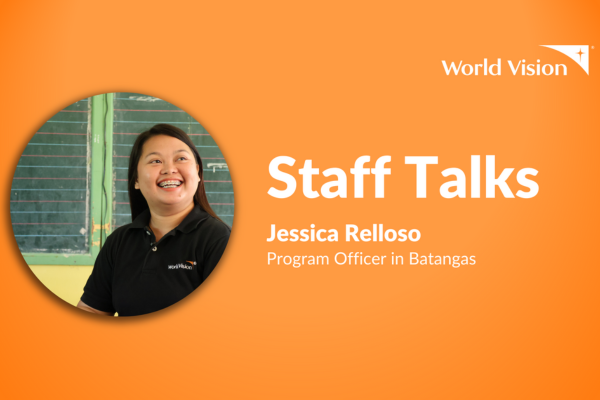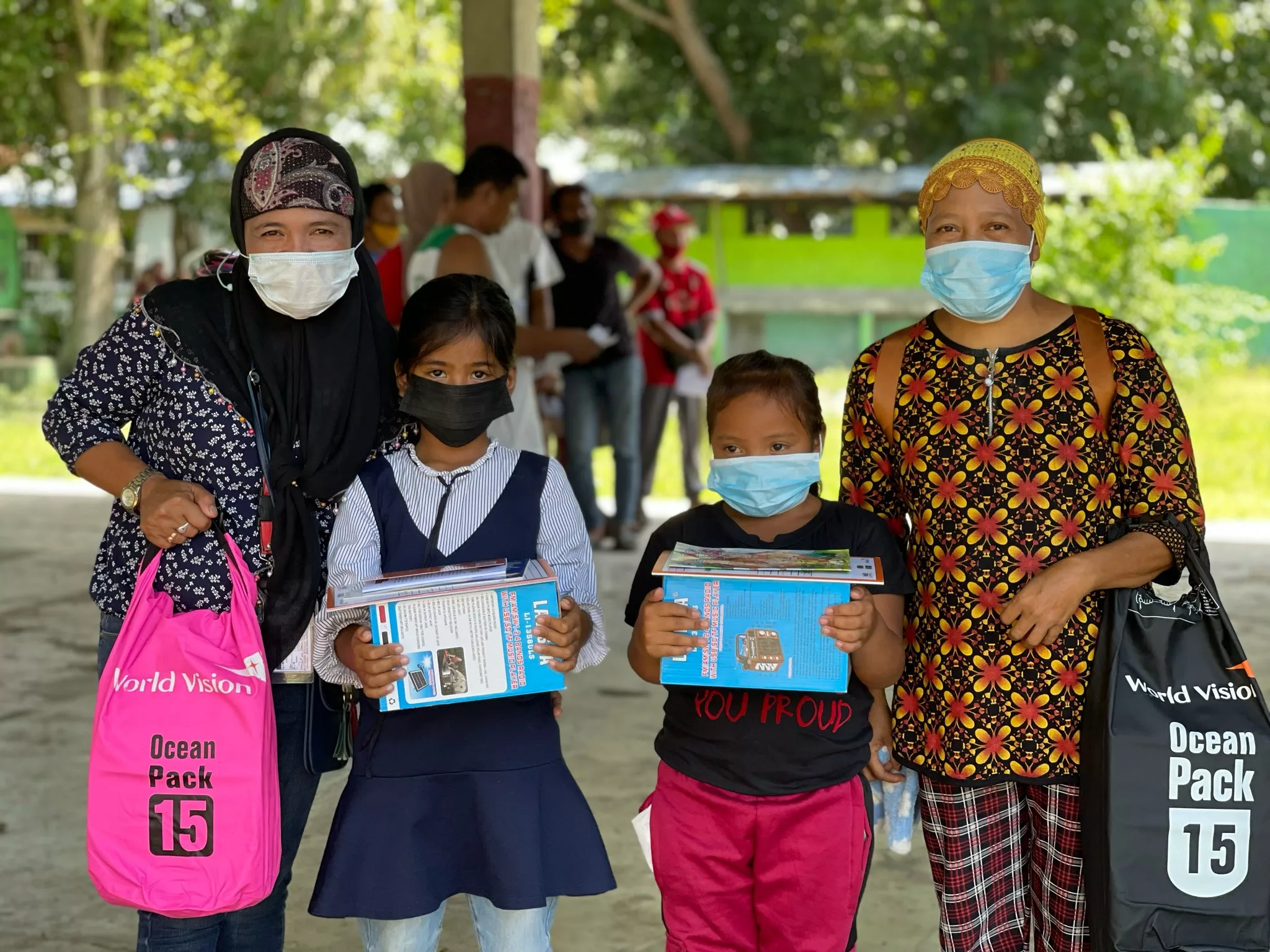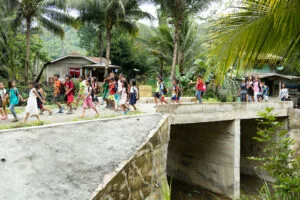World Vision development projects support families in quarantine
COVID-19 is an unforeseen and impactful phenomenon that has brought the world to its knees. Around 4,006,257 confirmed cases globally as of this writing. The Philippines share the plight of almost all nation in the world. The country records more than 11,000 cases and 726 deaths. (Information may change at any time due to the evolving situation; Data Reference as of May 11, 2020).
In the middle part of March, the country started to implement community quarantine on some of its major cities to prevent the spread of the virus.
World Vision, through the support from its donors, responded to the crisis by donating Personal Protective Equipment and disinfectant kits to frontliners especially to health and community workers, tents that can be used as treatment centers in hospitals, and vegetable packs to families. The organization also shared vital information to the public through tarpaulin printing, public service announcements through radio, TV, and LED billboards.
Aside from the relief response, World Vision’s existing development projects are also proven helpful to families especially those whose livelihood are affected by the community quarantine. Here are some ways how:

Families have healthy source of food right in their own backyard
During quarantine, it is difficult to maintain regular source of food. There are families who live off of a daily income and their only mean to survive this time is to rely on government support. Others may have saved money and stocked up food but it may have dwindled due to long weeks without work.
Through this difficult situation, many families supported by World Vision are thriving from their own backyard. Backyard Gardening is part of the organization’s economic development project. It aims to equip families how to grow their own produce for their additional income and personal consumption.
The families are trained how to grow vegetables while others are provided with animal livestock. They are also taught how to farm organically using ingredients that can be found easily. This addresses the concern of buying commercial fertilizer which can be difficult during quarantine.
Water supply to observe proper hygiene and sanitation
Many communities especially in far-flung areas still have limited or no water supply. The families rely on communal deep well while some walk far to fetch from a stream or river. World Vision assisted some of these communities by installing water systems through the partnership of the local government.
In this time of COVID-19 when proper hygiene and sanitation are considered essential, the water projects become more valuable to the families. They can practice hand washing and clean their surroundings to protect themselves from the virus.
Food to boost immune system
World Vision’s Pinoy Nutrition Hub is a project that addresses the malnutrition problem among children. It is a 12-session feeding program for identified malnourished children. During each feeding sessions, the staff also capacitate parents or guardians on how to prepare accessible meals that have complete nutrition.
This know-how on how to prepare nutritious food can be helpful during the pandemic especially that there’s a need to boost the immune system.
Information is aid
Accurate and well-communicated information is proven as life-saving as relief goods especially during an emergency. World Vision’s Disaster Risk Reduction (DRR) program train communities so they can better prepare when a disaster strikes.
One aspect of the DRR program is the provision of DRR equipment such as a public address system. This system is very helpful these days as the local government share vital information to residents.
Saved money saves family in quarantine
World Vision’s economic development project named Community-managed Savings and Credit Association or CoMSCA is a community savings mechanism that is being widely adopted by more than a hundred thousand members. The premise of this project is that a group of community members can save and pool their money together and increase its value through service charge from members’ credit.
Based on experiences from previous emergencies such as Typhoon Yolanda (Haiyan), CoMSCA is helpful for families who were affected by the typhoon. They used their saving to buy shelter materials and other needs. In this pandemic, the savings of each CoMSCA members can be useful in stocking up food supply and medicine for the long days of quarantine.
Other CoMSCA groups who have filled their social fund distributed rice to its members. Social fund is a portion where members put money and can be used for emergency purposes.
Reading materials for children
Culture of Reading (CoR) is World Vision’s former banner project under its education program. CoR aims to minimize the rate of non-readers in schools and communities by building reading hubs and donating reading materials. Community members and teachers are also trained how to make their own reading materials for the benefit of the children.
The reading materials, such as the visually appealing big books, can be productively used by the children during quarantine. This will help their learning continue especially now that the Department of Education is mulling to extend the opening of classes in August.
Work from Home
World Vision trained parents on entrepreneurial skills that they can use to increase their income. The organization partners with relevant agencies that can provide expertise to the participants such as the Technical Education and Skills Development Authority (TESDA) and Department of Trade and Industry among others.
In the absence of the parents’ regular jobs due to quarantine, relevant skills like food processing and product-making like detergent powder can help families earn while being required to stay at home. They can sell to their neighbors and use their income for their own necessities.
Safe environment for children
Abuse against children can happen anytime and anywhere – even inside the comforts of their own home. Child protection has been one of the main focus of World Vision. The organization partners with local government units to reactivate or strengthen their Barangay Council for the Protection of Children (BCPC). It is a government-mandated council responsible for the social protection of children in a barangay (village)-level. The organization also helped villages to have a referral system in place and trained community members about child’s rights.
In this time when all are required to stay at home, child abuse is likelier to happen. But having a barangay council who are keeping a vigilant eye against violence, children are protected.
Culture of Generosity
World Vision has been present in the Philippines for more than 60 years and supported many families and communities. These development projects are made possible because of the generosity of sponsors and donors.
As we move forward and face this COVID-19 pandemic, let’s continue to be united as we have ever been through the years.









